
#OTD 600 years ago one of the strangest events in medieval European history occurred: a Lithuanian prince from a recently pagan family, Žygimantas Kaributaitis, entered Prague to govern Bohemia, the first "heretical" kingdom to successfully split off from Catholic Christendom. 1/ 
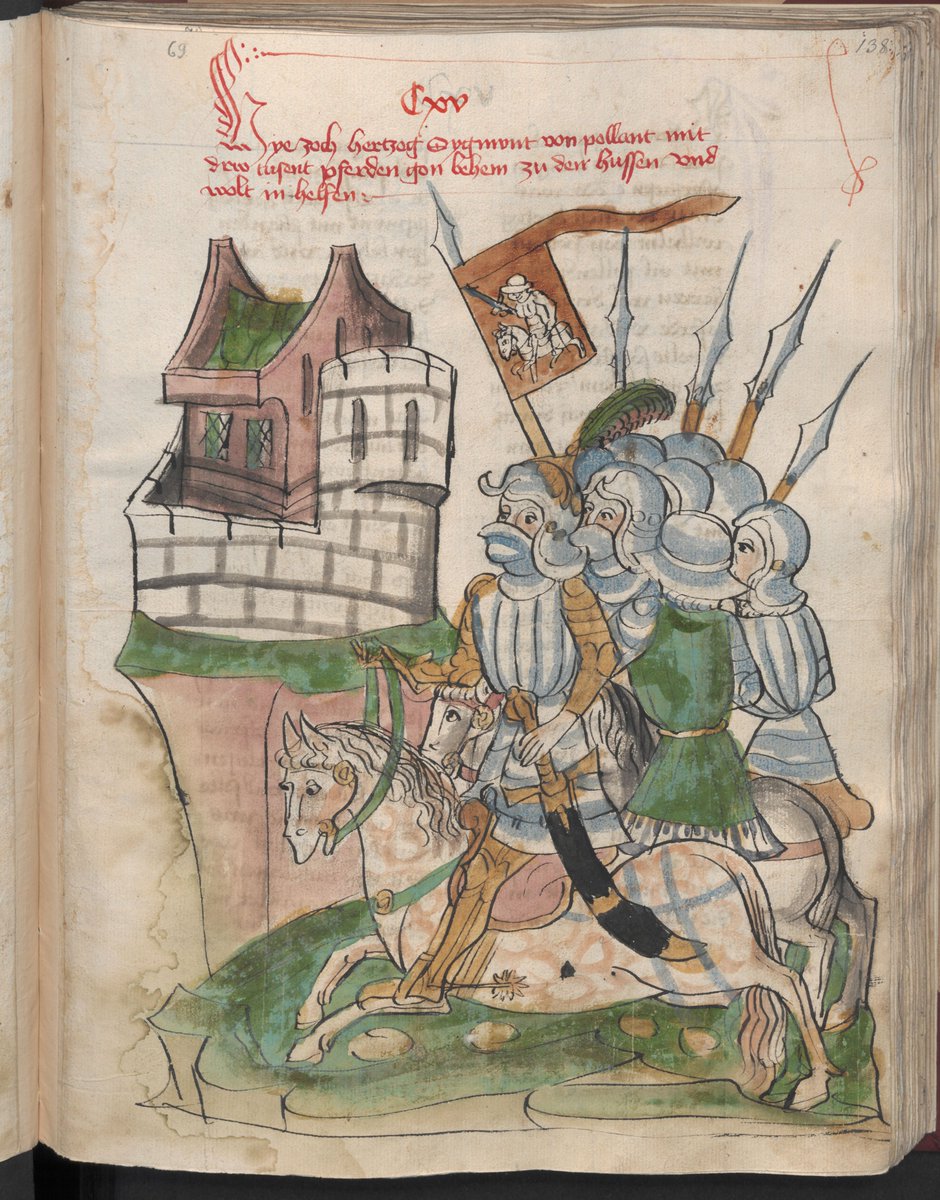
The image of Žygimantas entering Prague in the tweet above is from Eberhard Windeck's chronicle of the reign of Emperor Sigismund, ruler of Hungary and the Holy Roman Empire, who spent the 1420s failing to conquer Bohemia from the Hussites, despite several crusades. 2/ 

In short, the Hussites grew out of 14th/early 15th-century reform traditions in Bohemia, partly inspired by Jan Hus (executed for heresy in 1415). The Hussite movement embraced moderates and radicals but was united around a popular piety focused on preaching and the Eucharist. 3/ 
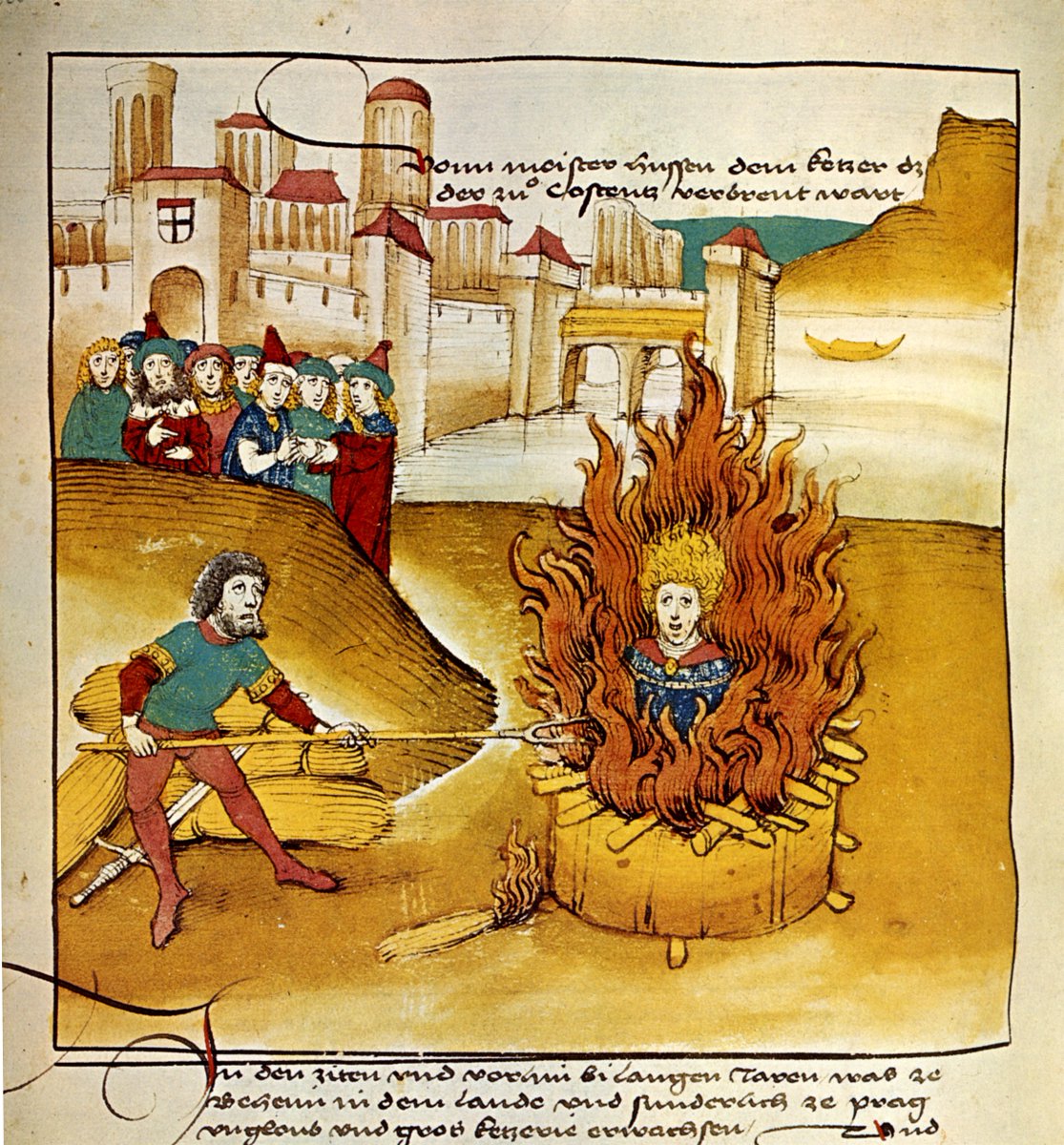
By early 1422, organized Hussite armies led by inspiring generals like the one-eyed nobleman Jan Žižka (depicted here in the Jenský codex) had repelled two crusades. However, Bohemia was divided internally. 4/ 
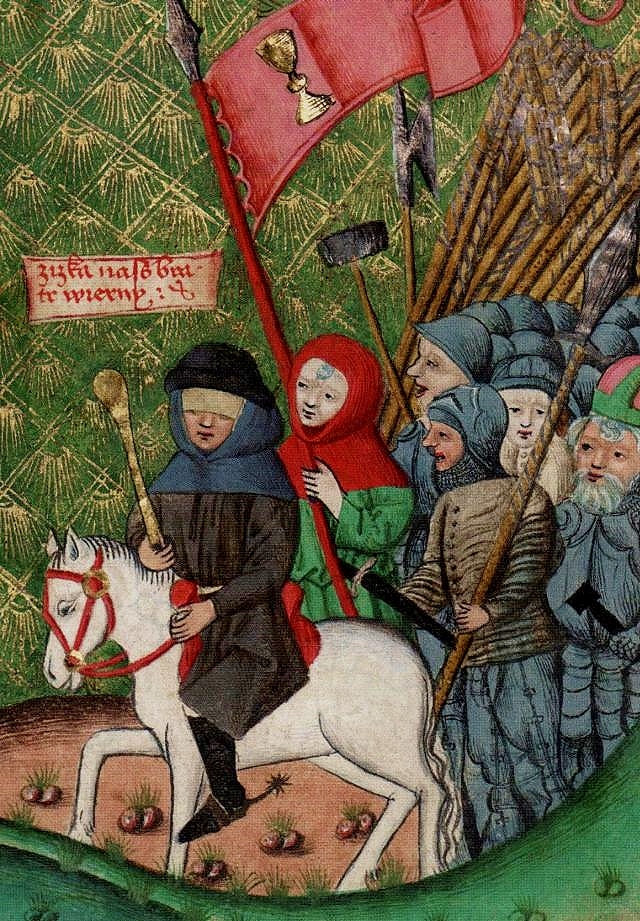
Žižka led the radical Táborites, who controlled an agile field army. But he had to contend with a politically powerful moderate faction of Hussites, with significant influence in Prague, and a league of Catholics that controlled much of Moravia and the region around Plzeň. 5/
Under intense international pressure (with the pope calling for all-out crusades against Bohemia), the Hussite factions had offered the crown of Bohemia to the king of Poland and Grand Duke of Lithuania, Władysław Jagiełło (formerly the pagan ruler Jogaila, baptized in 1386). 6/ 
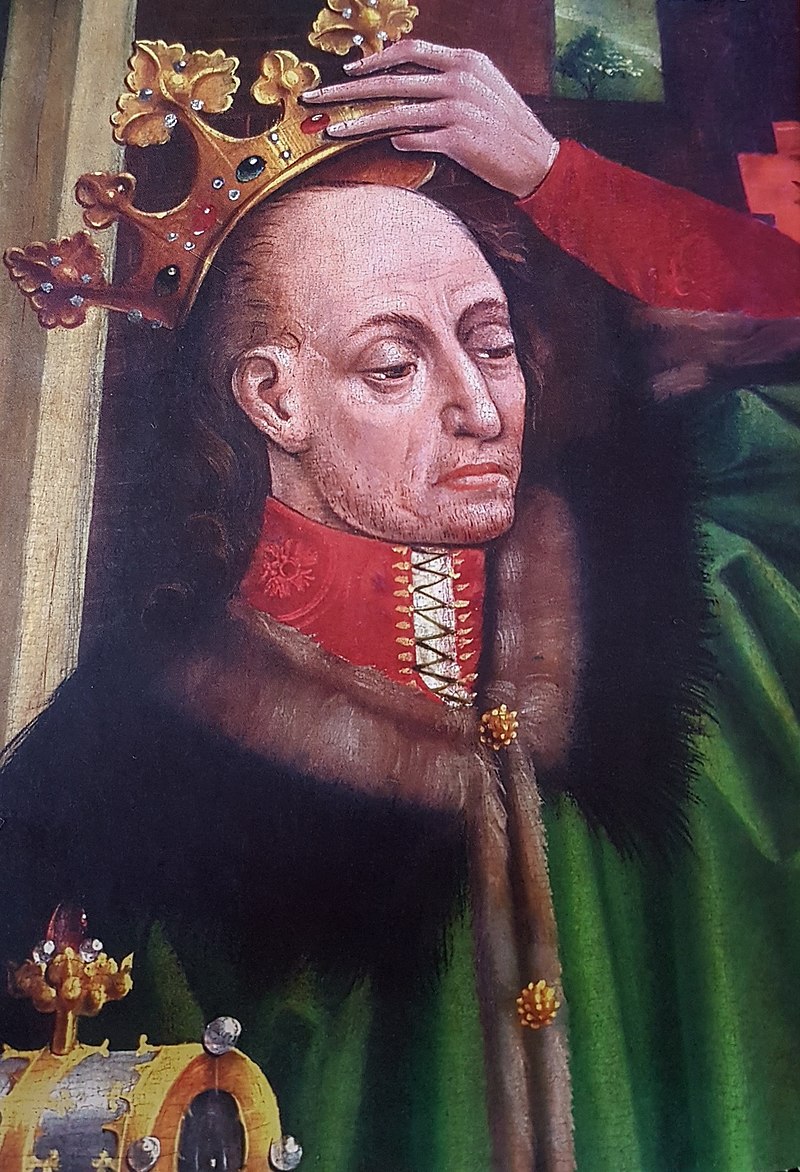
Czech and Polish cultural and linguistic ties, plus close networks (Žižka had served as a mercenary in Jagiełło's wars against the Teutonic Order), made this a logical choice. However, Jagiełło declined the offer; instead his Lithuanian cousin Vytautas (aka Witold) took it up. 7/ 
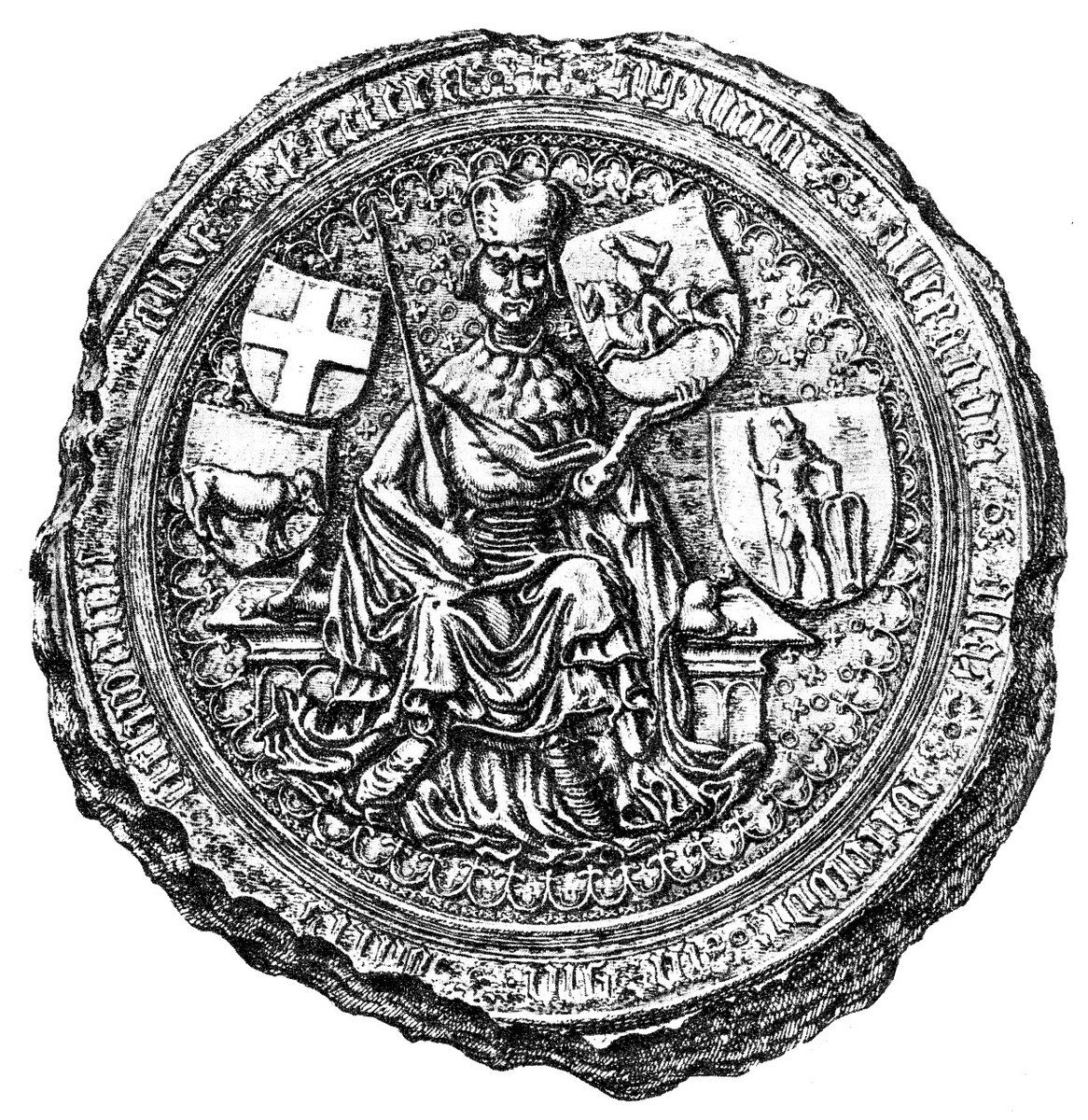
Vytautas dispatched Jagiełło's nephew Žygimantas to Bohemia with a force of 2500 men in early 1422. After some fighting in Moravia they entered on Prague on 16 May 1422. The Lithuanian warriors and steppe horsemen left quite an impression on Bohemian commentators. 8/
Žygimantas restored order in Prague and gained recognition from moderates and radicals. The Táborites acknowledged him in a letter “as helper and as highest administrator of this land” (za pomocníka a za zprávci najvyššieho této země). 9/
Thus, a 25-year-old born in what is now northern Ukraine to an erstwhile pagan father and Russian Orthodox mother briefly became the regent of a heretical kingdom at the heart of late medieval Catholic Europe. I defy you to find a more fascinating episode in medieval history./Fin
The epilogue to this is that Žygimantas could not maintain his position. His repeated attempts to intervene in the maelstrom of Bohemian politics and warfare in the 1420s failed. He returned to Lithuania where he died in 1435 during the succession struggle after Vytautas’s death.
My source for this whole thread is František Šmahel’s history of the Hussite revolution (Czech edition 1993; German translation 2002). This may interest @DrFrancisYoung @DannyBate4 @MilesTeutonicus @GoingMedieval
• • •
Missing some Tweet in this thread? You can try to
force a refresh



